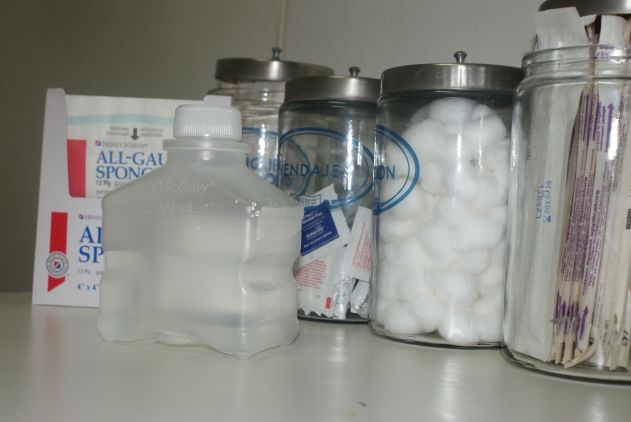How Do I Know If I Have an Ulcer?
Describing your symptoms may lead your doctor to suspect that you have a peptic ulcer, but it will not likely help determine the type, because the symptoms of stomach and duodenal ulcers are so similar. To make a specific diagnosis, your doctor may conduct several tests.
Endoscopy, in which a flexible fiber-optic tube is inserted down the throat to give the doctor a direct view of the inside of your esophagus, stomach, and duodenum, is the most accurate diagnostic test to diagnose a peptic ulcer. This allows the doctor to determine the presence and cause of bleeding and test for any bacterial infection.
For people who can’t have an endoscopy, a barium swallow (or upper GI series of X-rays) can also allow your doctor to identify and locate the ulcer and determine its type and severity. The test requires you to drink a “barium milkshake,” which has a liquid that will show up on an X-ray. You may be asked to eat only bland, easily digestible foods for two or three days before the test. After drinking the chalky liquid, you lie down on a tilting examining table, which evenly distributes the barium around your upper digestive tract and allows the X-ray to capture images at different angles.
What Are the Treatments for an Ulcer?
Medications are usually used to treat mild-to-moderate ulcers. If the cause is bacterial, antibiotics can help cure the ulcer. For recurrent, severe cases that do not respond to medication, surgery may be necessary. Although alternative therapies have been shown to aid in the relief of symptoms, they should be used only as supplements to conventional treatment. You should not treat an ulcer on your own without first seeing your doctor. Over-the-counter antacids and acid blockers may relieve some or all of the pain, but the relief is always short-lived. With a doctor’s help, you can find relief from the ulcer pain, as well as a lifelong cure from the disease.
The chief goals of treatment are reducing the amount of acid in the stomach, strengthening the protective linings that come in direct contact with gastric acids, and — if your ulcer is caused by bacterial infection — treating the H. pylori infection with medication.
Tips for Living With Ulcers
- If you have an ulcer, be cautious when choosing over-the-counter pain relievers. Aspirin and other nonsteroidal anti-inflammatory drugs (NSAIDs) such as ibuprofen may not only irritate the ulcer but also prevent a bleeding ulcer from healing. Avoid powdered headache medication as well, which usually contain powdered aspirin. Your best choice may be acetaminophen, which does not cause or promote stomach ulcers.
- Don’t overdose on iron supplements. Although people with bleeding ulcers can develop anemia and may need to take iron as a treatment, taking too much can irritate the stomach lining and the ulcer. Ask your doctor how much iron you need.
- Learn how to deal with stress. Practicing relaxation techniques — including deep breathing, guided imagery, and moderate exercise — can help alleviate stress and promote healing.

